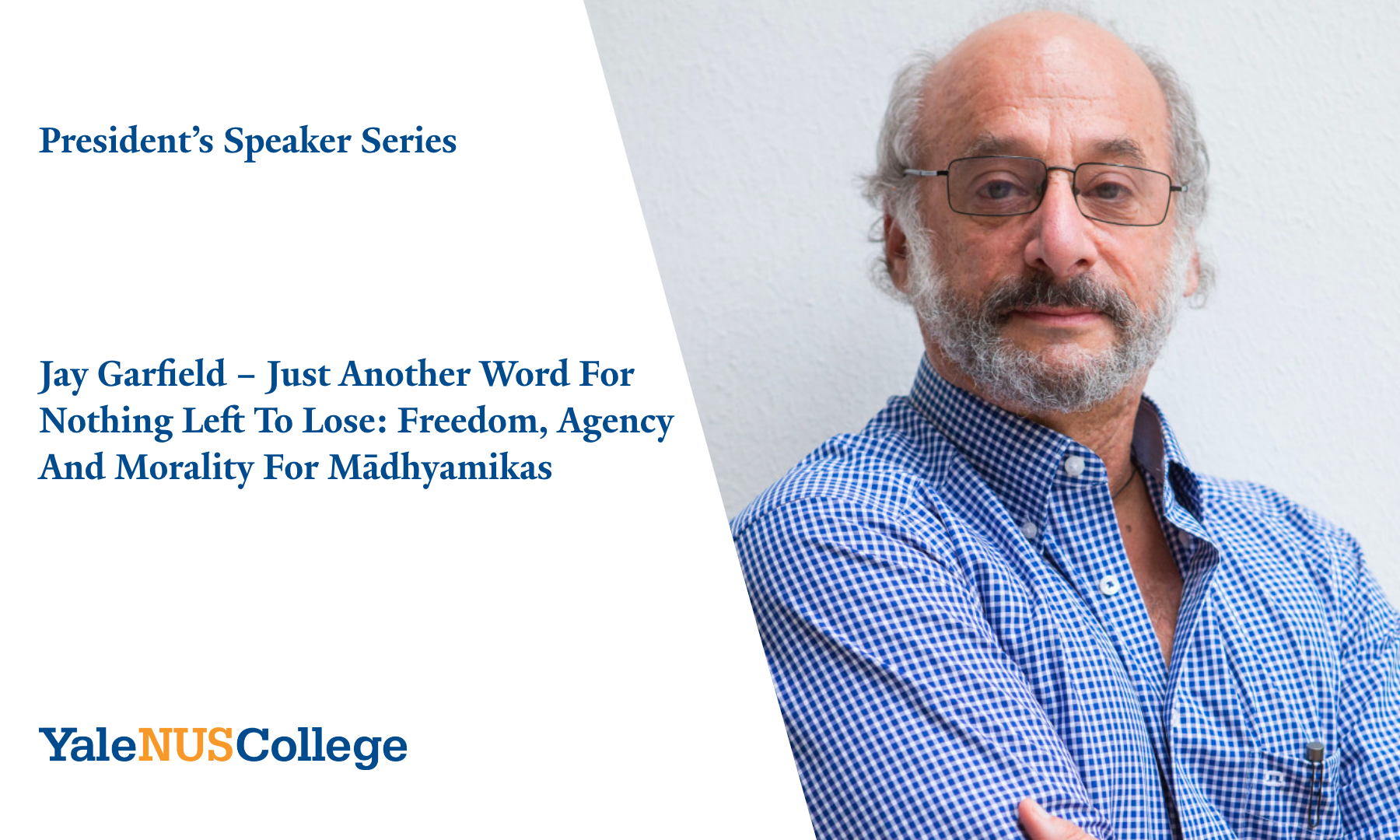

Venue: University Town Auditorium 3 @ College of Alice & Peter Tan
Professor Jay L Garfield is Kwan Im Thong Hood Cho Temple Professor of Humanities and Head of Studies in Philosophy at Yale-NUS College, Professor of Philosophy at the National University of Singapore, Recurrent Visiting Professor of Philosophy at Yale University, Doris Silbert Professor in the Humanities and Professor of Philosophy at Smith College, Professor of Philosophy at University of Melbourne and Adjunct Professor of Philosophy at the Central University of Tibetan Studies. He earned his PhD in Philosophy at the University of Pittsburgh. Professor Garfield teaches and pursues research in the philosophy of mind, foundations of cognitive science, logic, philosophy of language, Buddhist philosophy, cross-cultural hermeneutics, theoretical and applied ethics and epistemology.
Garfield’s most recent books are Western Idealism and its Critics (2011), Sweet Reason: A Field Guide to Modern Logic (2011) Indian Philosophy in English from Renaissance to Independence (with Nalini Bhushan, 2011), Contrary Thinking: Selected Essays of Daya Krishna (with Nalini Bhushan and Daniel Raveh, 2011), Moonshadows: Conventional Truth in Buddhist Philosophy (with the Cowherds, 2010), The Oxford Handbook of World Philosophy (with William Edelgass, 2010), Buddhist Philosophy: Essential Readings (with William Edelglass, OUP 2009), TransBuddhism: Translation, Transmission and Transformation (with Nalini Bhushan and Abraham Zablocki, , Pointing at the Moon: Buddhim, Logic and Analytic Philosophy (with Mario D’Amato and Tom Tillemans, 2009), Ocean of Reasoning (with Geshe Ngawang Samten, 2006), Empty Words: Buddhist Philosophy and Cross-Cultural Interpretation (1996) and Fundamental Wisdom of the Middle Way: Nāgārjuna’s Mūlamadhyamakakārikā (1995).
Professor Garfield’s current work in progress includes his book Engaging Buddhism: Why Buddhism Matters to Contemporary Philosophy, a book with Nalini Bhushan, Masala Modernity: Philosophy in the Indian Renaissance, Moonpaths: Ethics in the Context of Conventional Truth (with the Cowherds) and the edited collections Madhyamaka and Yogācāra: Allies or Rivals (with Jan Westerhoff) and The Moon Points Back: Buddhism, Logic and Analytic Philosophy (with Yasuo Deguchi, Graham Priest and Koji Tanaka) as well as a collaborative project on Dignāga’s Alaṃbanāparikṣā and its commentaries.
Do we have free will, or are our actions all determined by causes? For centuries, this has seemed to be an obvious question to ask for Western philosophers. But this question is not universal, and does not even exist in the Buddhist traditions rooted in India. So maybe better questions to ask are, “Does the question about the freedom of the will even make sense? What do you need to presuppose in order to ask it?” Using the Buddhist tradition as a touchstone, we will explore these questions, and think about how to understand human agency without worrying about the freedom and determinism.


